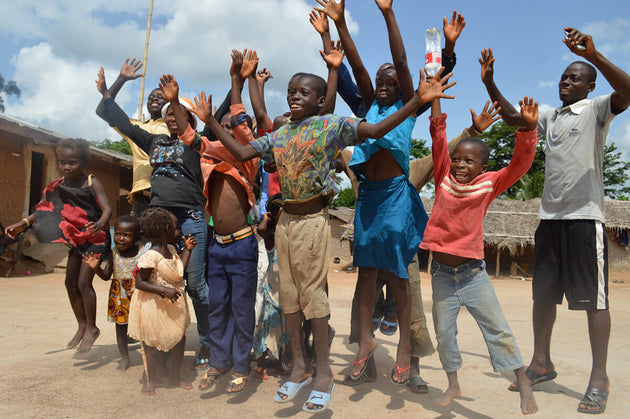Our Sourcing
Where does our chocolate come from?
We’re passionate about cocoa and the people who grow it; and bet you are, too. We work hard to ensure our ethical sourcing practices address issues like gender equality, child labor, sustainable farming methods, higher profits, and more—which is why we’re proud to source Rainforest Alliance Certified cacao from West Africa.
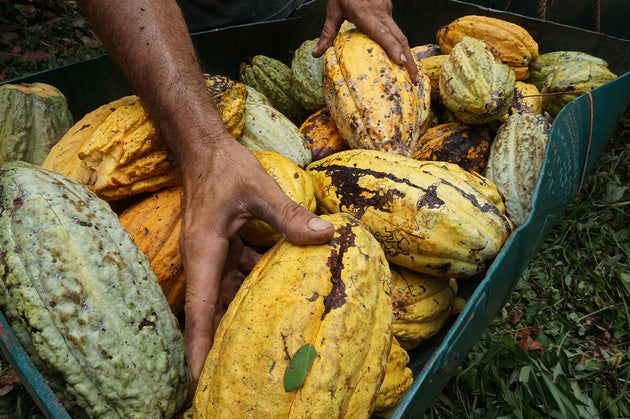
What is Rainforest Alliance?
The Rainforest Alliance is an international non-profit organization working at the intersection of business, agriculture, and forests to make responsible business the new normal. They are building an alliance to protect forests, improve the livelihoods of farmers and forest communities, promote their human rights, and help them mitigate and adapt to the climate crisis.
Why do we source cocoa from Rainforest Alliance Certified farms?
The Rainforest Alliance is working to solve some of the most pressing social and environmental issues of our time—including the climate crisis—by changing the way the world produces and consumes. The green frog seal stands for a better future for people and nature.
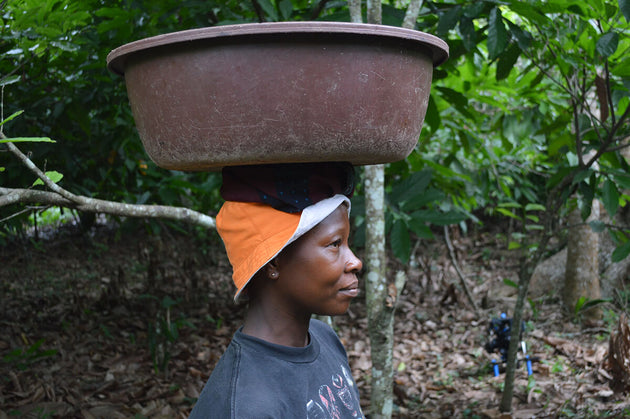
Rainforest Alliance Certified farmers receive training to address human rights issues such as child labor, gender inequality, and discrimination. RA works to achieve better livelihoods for farmers and workers in many different ways, including the following:
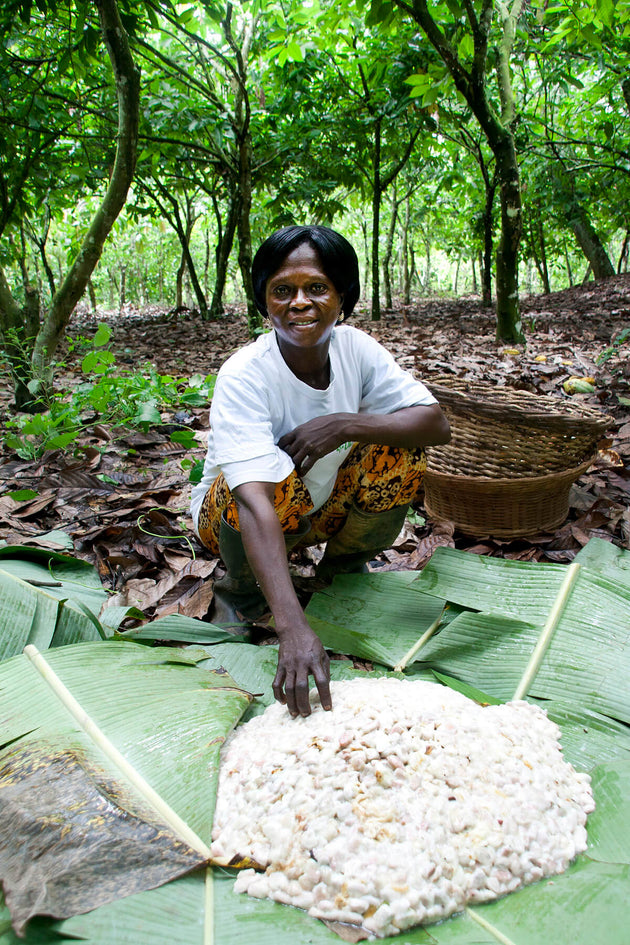
Addressing forced labor
There is no place in Rainforest Alliance Certified farms for human rights violations such as child labor, forced labor, discrimination or workplace violence, and harassment. Given the high risk of such violations in some cocoa supply chains, they require farms and groups to put rigorous systems in place, which include doing a risk assessment and implementing related mitigation measures, conducting regular self-monitoring, and remediating any known cases of such violations.
In addition, Rainforest Alliance Certified farms are audited by independent certification bodies against Rainforest Alliance’s robust farm standards. Severe cases, if not remediated, and violations of applicable law will lead to a negative certification decision, suspension, or cancellation of the certificate.
Enabling living incomes
A living income is the net income required for a household in a
particular place to afford a decent standard of living for all members. Elements of a decent standard of living include food, water, housing, education, healthcare, transport, clothing, and other essential needs, including enough to cover unexpected events. Rainforest Alliance’s approach to enabling living incomes centers on helping farmers grow their businesses and become more profitable and resilient. Three studies published in 2018-2020 reveal that income from cocoa production is 40% higher on average on Rainforest Alliance Certified farms in Ghana and Cote d’Ivoire, compared to non-certified farms.
Working against gender discrimination
Rainforest Alliance gives farms and companies tools to understand and address the gender gaps in their operations. All certificate holders must appoint a person or committee dedicated to addressing gender equality through tools that identify gaps in their structure and procedures to close those gaps. Beyond their work with farms and companies, Rainforest Alliance works with communities, local organizations, and governments to promote both gender equality and women’s empowerment.
FUN FACT: when women farmers are given equal access to resources, education, financing, and land rights, they can increase farm yields by 20 to 30 percent. Studies show that women are more likely to spend their income on food, clothing, education, and health-related items for their families than men. In fact, women invest 90 percent of their income in their immediate families and, when they own their property, they have more power over household decisions, food security is enhanced, and prospects are greatly improved for their children and future generations, according to the World Economic Forum.
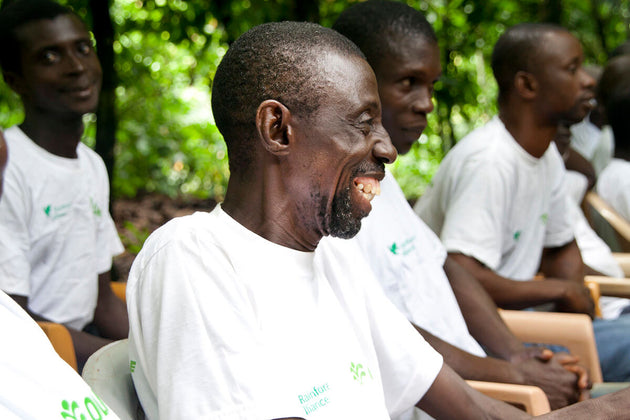
Improving living conditions
The Rainforest Alliance agriculture standard requires that certified farms have access to clean drinking water, adequate sanitation, health care, including maternity leave; and the right to collective bargaining.
Requiring responsibility from cocoa purchasers
Rainforest Alliance understands the shared responsibility of investing in sustainable cocoa production. The Sustainability Differential is a mandatory additional cash payment made to certified producers over and above the market price of the commodity. The amount of the Sustainability Differential isn’t fixed and when possible, it is negotiated between the farmer and the purchaser.
Rainforest Alliance Certified cocoa is grown according to standards that protect natural resources and the environment by using land, water, and energy carefully.
Farmers on certified farms use fewer artificial fertilizers and pesticides (Click here to see the list of banned pesticides.) They also learn how to preserve forested and protected areas, which in turn helps support the biodiversity of plants and animals.
Farmers are trained to monitor soil fertility, water availability, erosion, tree spacing, compost preparation, and more to cope with and combat climate change.
